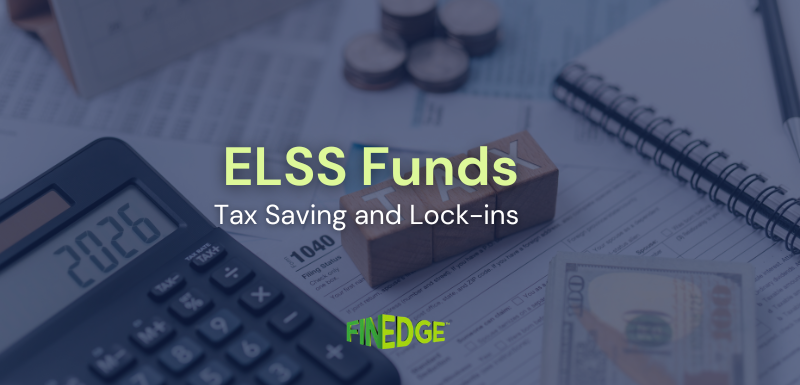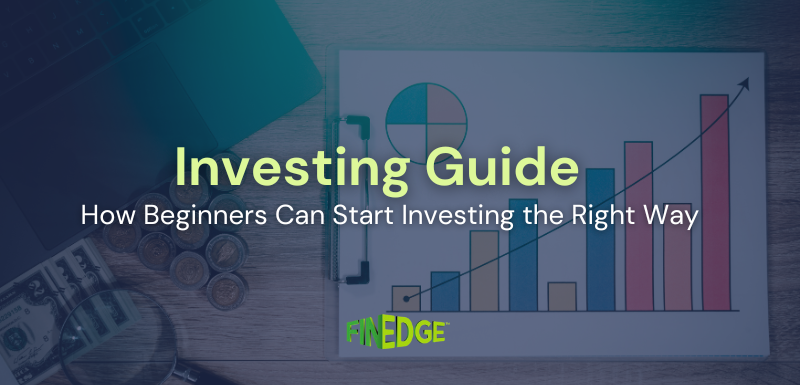Investing Insights
Does High Income Make You Wealthy?
A high income can create the possibility of wealth. But wealth itself is built through structure, patience, and intentional decisions. It is less about how much you earn, and more about how deliberately you direct it
Retirement Planning in India: A Practical Framework for Long-Term Security
Retirement is not a milestone; it is a long phase of life that requires financial continuity. The real goal is not just building wealth, but ensuring that wealth supports your lifestyle, healthcare needs, and independence for decades.
When Is the Right Time to Start Investing for Your Goals?
When is the right time to start investing for your goals? Many believe the answer depends on market stability, income comfort, or economic certainty. In reality, the right time is when your goals are clear and you are prepared to act with discipline. Wealth is rarely created by waiting. It is built through consistent participation guided by a defined investment process.
How to Adjust Your Investments After a Salary Raise
A salary hike is more than a pay revision, it is an opportunity to realign your financial direction. The smartest response to higher income is not immediate lifestyle expansion, but a structured review of your goals, debt position, and investment contributions. When handled thoughtfully, each raise can accelerate wealth creation rather than simply increase monthly expenses.
Why Mid-Cap Allocation Needs More Discipline Than Large Cap
Mid-cap allocation demands more discipline than large cap because it comes with sharper market swings. While mid caps offer higher long-term growth potential, they also test investor patience during downturns. The key is not choosing one over the other, but understanding how each behaves across market cycles.
Why Return-Focused Investing Fails in Volatile Markets
Return-focused investing fails in volatile markets because it relies on recent performance as the primary decision-making anchor. When markets fluctuate sharply, investors who chase returns tend to react emotionally switching funds, exiting prematurely, or increasing risk at the wrong time. Over time, these reactions interrupt compounding and damage long-term wealth creation.
What Is NAV in Mutual Fund? A Simple Guide to Understanding Net Asset Value
If you are trying to understand what NAV in mutual fund investing means, the answer is simple: NAV, or net asset value, represents the per-unit value of a mutual fund’s portfolio after deducting its liabilities. It tells you how much each unit you hold is worth at the end of a trading day. It does not indicate whether a fund is cheap, expensive, or better than another, it is simply a daily valuation measure.
ELSS Mutual Funds: A Simple Way to Save Tax and Build Long-Term Wealth
ELSS mutual funds help you save tax under Section 80C while participating in equity markets for long-term growth. With the shortest lock-in among 80C options and the flexibility of SIP investing, they can align tax efficiency with disciplined wealth creation. Used correctly, ELSS is not just a tax-saving tool, but a long-term investment strategy.
Accelerated Trends of Women Investing in India
Women investing in India is no longer a trend, it is a structural shift in financial participation. Rising workforce inclusion, larger financial goals, and disciplined planning are reshaping the investment ecosystem. As more women take charge of wealth creation, the future of investing is becoming more inclusive and goal-driven.
GIFT Nifty vs Nifty 50: Understanding the Key Differences
Many investors often hear terms like GIFT Nifty and Nifty 50 used interchangeably. However, they are not the same. While Nifty 50 represents India’s top 50 companies and reflects the health of the stock market, GIFT Nifty is a futures contract based on that index, designed to provide extended trading access especially for global participants. Understanding this distinction is essential before interpreting market signals.
Are NFOs Cheaper at ₹10 NAV? Understanding the Mutual Fund Myth
Many investors believe that New Fund Offers (NFOs) are cheaper or promise higher returns simply because their Net Asset Value (NAV) starts at ₹10. This assumption, however, comes from confusing mutual funds with stock IPOs. Let’s understand why NAV does not determine mutual fund returns.
Beginner Investing Guide: How to Start Investing the Right Way
Investing for beginners can feel both exciting and overwhelming. With constant news about markets, social media opinions, and stories of quick gains, first-time investors often struggle to separate what truly matters from what is simply noise.
Latest Posts
Does High Income Make You Wealthy?
Feb 27, 2026
Retirement Planning in India: A Practical Framework for Long-Term Security
Feb 25, 2026
When Is the Right Time to Start Investing for Your Goals?
Feb 23, 2026
How to Adjust Your Investments After a Salary Raise
Feb 20, 2026
Why Mid-Cap Allocation Needs More Discipline Than Large Cap
Feb 18, 2026
The Importance of your Child’s Education Goal
Feb 28, 2024
Why Retirement Planning is Important
Nov 08, 2023
Oct 31, 2023
Investing Behaviour and the investing roller coaster
Oct 12, 2023
Investing Stories


.png)


.png)



.png)
.png)




.jpg)

.jpg)
_(1)1.jpg)
.jpg)
.jpg)
.jpg)